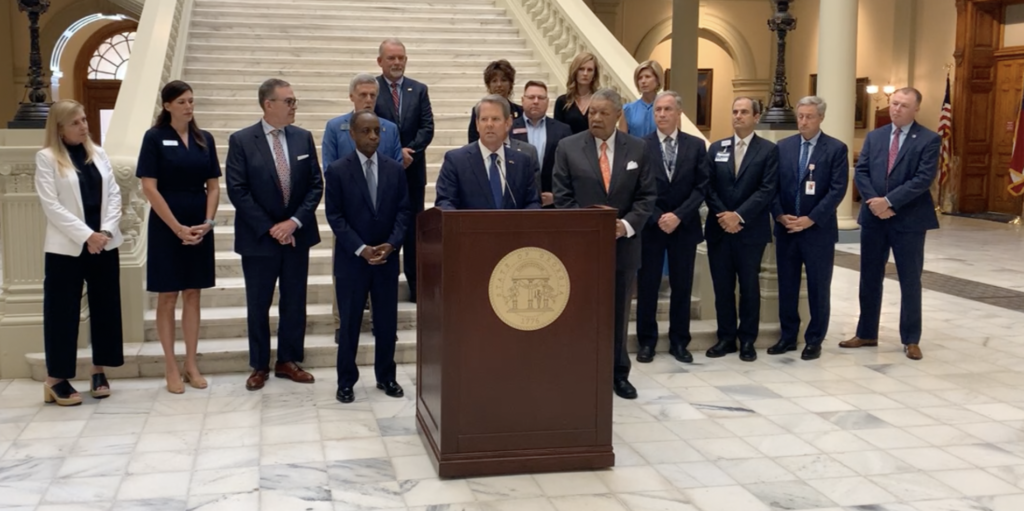
ATLANTA – The state will funnel $130 million in federal COVID relief funds to Grady Memorial Hospital to help offset the impact of the looming closure of WellStar’s Atlanta Medical Center (AMC), Gov. Brian Kemp announced Thursday.
The Republican governor and two Atlanta-area Democratic leaders addressed how Georgia’s capital city will cope with the closure of the WellStar facility in November. Last month, WellStar announced it plans to close the busy hospital whose 460 beds serve patients from surrounding neighborhoods and across Georgia.
WellStar’s decision to close AMC comes after the company announced earlier this year that it would close a smaller hospital in South Atlanta.
The closures put the city’s other large hospital, Grady Memorial, in the spotlight as politicians and health-care providers seek to figure out how Grady and other facilities will serve patients formerly cared for at AMC.
The cash infusion Kemp announced Thursday will let Grady add nearly 200 beds. Grady already was planning to bring 40 new beds online in November. The additional beds will be added in a rolling fashion over the next year.
The state will also provide Grady with a mobile hospital unit that will add 24 beds to the hospital’s capacity, Kemp said.
Georgia recently started a new program that will increase reimbursement rates at Grady for people on Medicaid if the hospital meets certain performance targets, Kemp said. This change to the funding formula will provide Grady with an additional $130 million on top of the federal infusion.
“These are not Band Aid solutions,” Kemp said. “They are meaningful, carefully thought out and implemented measures designed to ensure this cornerstone of Atlanta’s health care network is on solid footing for many years.
“It is our goal to see these investments strengthen Grady’s long-term ability to serve patients who would have otherwise chosen AMC.”
Fulton County Commission Chairman Robb Pitts and DeKalb County CEO Michael Thurmond stood alongside Kemp as he made the announcement and said they supported the new plan – but that more work is needed to shore up the city’s medical system.
Pitts said his county recently increased funding to Grady by $11 million.
“This, though, is a short-term solution to the problem,” he said.
Pitts said he and his team also are looking at how another health-care facility in South Fulton could be funded and built.
“The governor through a very generous appropriation has provided us with a reprieve but not a bailout – and that’s important for everyone here today to understand,” Thurmond added.
Thurmond said people across Atlanta share a need for good health care, and the issue should not be politicized.
“Affordable health care is not about Republicans and Democrats,” he said. “It’s about saving lives and maintaining the quality of life for all of our citizens.”
Democrat Stacey Abrams – who is challenging Kemp for the governorship in November – said during a separate press conference that the new plan does not go far enough to address the strains on Atlanta’s health-care system and that Georgia should expand Medicaid.
“The argument that has been put forward is that a stopgap measure will solve the problem,” she said. “Problem is the math doesn’t work.”
By not expanding Medicaid, the state is foregoing $3.5 billion in federal funding each year that could provide low-income Georgians with health insurance and help support Georgia hospitals, Abrams said.
“Adding 180 beds or 200 beds at Grady cannot solve a systemic collapse of public health,” she said.
Kemp said on the campaign trail last week that expanding Medicaid would not save AMC. He has rejected expanding Medicaid coverage as too expensive.
This story is available through a news partnership with Capitol Beat News Service, a project of the Georgia Press Educational Foundation.